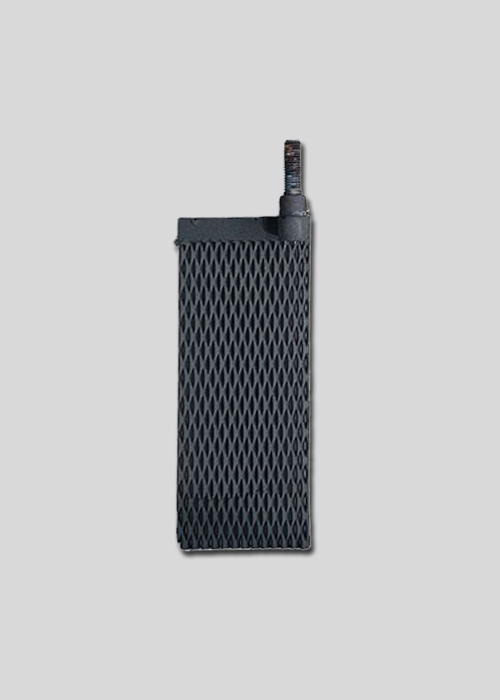PbO2 anode has strong chemical corrosion resistance, high oxygen overpotential, strong oxidation ability when electrolyzed in aqueous solution, and high passable current density. At present, it has been widely used in printing and dyeing wastewater, petroleum industry wastewater, electrolysis, electrodeposition, cathodic anticorrosion and other fields.
PbO2 anodes is an economical alternative to the platinized anode. PbO2 anodes are mainly used in the electrolytic production of perchlorates and chlorates.
Application of PbO2 anode for Organic sewage treatment
1. Chromium plating and hard Chromium plating stronger acid solution;
2. Chromate Treatment;
3. To make chromic acid; Perchlorate and Periodate;
4. Electrochemical oxidation of synthetic organic compounds in acid solution;
5. Electrolysis recovery and extraction of nonferrous metals in stronger acid solution.
Substrate Metal Chemical Composition
| Grade | N | C | H | FE | O | TI |
|---|---|---|---|---|---|---|
| Gr1 | 0.03 | 0.08 | 0.015 | 0.20 | 0.18 | bal |
Metal Mechanical Properties:
| Grade | Tensile strength(min) | Yield strength(min) | Elongation (%) |
|---|---|---|---|
| ksi | MPa | ksi | MPa |
| Gr1 | 35 | 240 | 25 |
MMO Coating: lead oxide (PbO2):
| Coating | Oxygen revolution potential | Suitable working environment |
|---|---|---|
| lead oxide (PbO2) | <1.75V | Solution not contain Cl-, PH=7, High COD |
Working Parameters for lead oxide (PbO2) Coating:
| Current density | Temperature | Chlorine concentration | Polarity reversal | Reversal frequency |
|---|---|---|---|---|
| <5000A/m2 | 40-60°C | suitable | 2-4 hours |
Design Sizes:
| Application | Sewage Treatment |
|---|---|
| Common sizes | Custom-made size available (sample size 100*100mm) |
